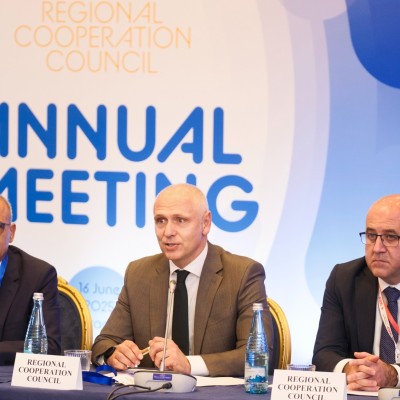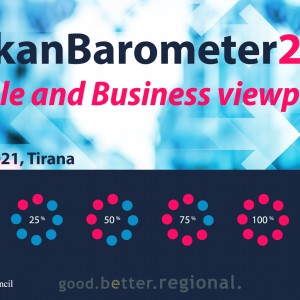Women, youth and vulnerable groups, namely Roma, constitute a topic of shared concern for all Western Balkan economies. High unemployment rate, negative demographic trends and aspirations towards emigration affect these groups the most. They are at particular risk of being excluded and suffer from structural inequalities across the region. The outbreak of COVID-19 pandemic and its indirect and direct consequences had an adverse impact on the position of vulnerable groups in the Western Balkans, especially regarding their concerns about future employability.
In 2020, only 41.3% of working age women were employed compared to 59.5% of working age man. Youth unemployment rate in the Western Balkans is 33.1% - more than double compared to 16.6% in the EU, according to the latest ESAP Observatory 2021 data.
Unemployment persists as the main problem recognised by youth in the Western Balkans with 46%, while at the same time 60% considers having inadequate employment opportunities.
Roma population, which is in the centre of social vulnerability in the Western Balkans, concerns most about losing their own job in the next 12 months with 64% of respondents claiming so. Another pressing issue regarding Roma population employability is the fact that 61% of them are engaged in undeclared work, placing this group in a challenging position when achieving social and economic equality.
Nevertheless, 77% of the WB youth recognises the value of regional cooperation, which is perceived as the main prerequisite for better political, economic, and security situation. The significance and the potential of regional cooperation can highly impact stronger social integration in the societies and deeper engagement in the human capital development actions. Ensuing economic and health crisis caused by the COVID-19 pandemic only exacerbated socio-economic gaps and underlined already existing inequalities. Acting as a leading mechanism for regional cooperation in South East Europe, the RCC has taken over the task to encourage stronger engagement of women, youth and Roma and promote their leadership in social and economic development through its targeted actions in line with the European Pillar of Social Rights.





